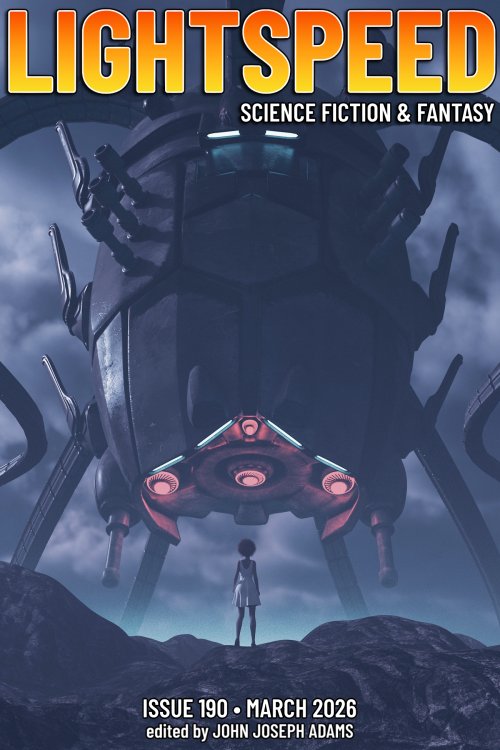The Memory of the Ogisi
Moses Ose Utomi
Hardcover/Ebook
ISBN: 978-1250849045
Tordotcom, July 15, 128 pgs
 “Even deserts have a beginning,” and all good fantasy series must come to an end. The Forever Desert trilogy, which began with The Lies of the Ajungo and continued with The Truth of the Aleke, finally does so with this novella.
“Even deserts have a beginning,” and all good fantasy series must come to an end. The Forever Desert trilogy, which began with The Lies of the Ajungo and continued with The Truth of the Aleke, finally does so with this novella.
Ethike is an ogisi, a scholar in The City of a Thousand Stories. He studies in The Great Temple of Osi, takes care of his orphaned niece Uwi, and is painfully grateful for all that he has, despite past personal traumas. When he discovers that one of the great figures of history may have had a very different life than the one contained in the magical collective memory of his people, he asks the Elders to send him on a quest to find the deeper truth.
Of course they do, and of course nothing goes the way it’s expected to, including the journey readers expect Ethike to go on. Nothing is quite as it seems in this story. Ethike’s companions are full of surprises, the journey is both easier and harder than it should be, and the truth that he finds is both confusingly unclear and catastrophically obvious. What–and who–Ethike finds while searching the Forever Desert changes not only him, but his entire world, its history, and how everyone thinks of those things.
This book is vaguer and stranger than the previous two instalments, but so is the nature of memory. The two previous books examined how truth changes depending on one’s point of view. The Memory of the Ogisi is more concerned with outcome than with perspective, and the implications of that made my head spin a little. Ethike’s story forces us to ask ourselves if the truth is in knowing, or telling, and whether or not the real truth matters as long as the people believe something that forces change. Whether or not that change is positive is up for interpretation–but again, the interpretation isn’t as important as the outcome is here. Who decides on that outcome certainly is, however.
This isn’t a happy ending that wraps up the trilogy with a tidy bow and makes us all feel good about the characters as they come to the end of their journeys. Instead, it’s a paradigm shift that turns everything you thought you knew about the Forever Desert and its suffering kingdoms on its head and makes you reconsider everything and everyone you’ve met here. All of Ethike’s world—and the worlds of Tutu and Osi before him—are under scrutiny. The right things to say, hear, and see are no longer clear.
What is clear is that this series has some of the most beautiful writing in recent fantasy fiction. The prose is lyrical, philosophical, and beautifully wrought. It’s a joy to read this just for the flow of the language, and the story that unspools beneath Utomi’s pen is definitely worthy of the words that create it.
This is a beautiful, unexpected conclusion to a masterfully wrought adventure series, told in language that does its epic nature justice. Don’t expect to walk away knowing how to think about what you’ve just read or how to remember it. Just know that you definitely will.
Enjoyed this article? Consider supporting us via one of the following methods:










